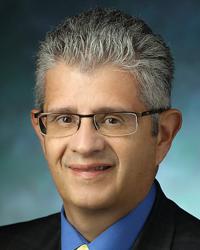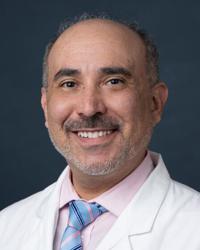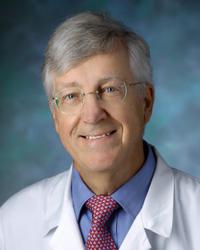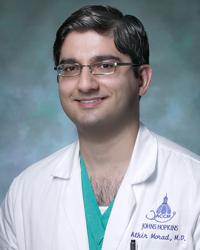Research Lab Results
-
Patrick Breysse Lab
Research in the Patrick Breysse Lab seeks to better understand the biological, chemical and physical factors that can impact a patient’s health. Our team is currently studying the effects of indoor and outdoor air pollution on childhood asthma, respiratory tract infections, chronic obstructive pulmonary disease (COPD) and other respiratory conditions. We also conduct research on secondhand smoke exposure around the world and have participated in a range of health and exposure studies in Peru, Nepal, Mongolia, Columbia and India.
-
Pedro Alejandro Mendez-Tellez Lab
Work in the Pedro Alejandro Mendez-Tellez Lab focuses on critical care medicine and acute lung injury. Recent studies include evaluating demographic and clinical factors associated with self-reported dysphagia after oral endotracheal intubation and mechanical ventilation in patients with acute lung injury. We've also analyzed orticosteroids and their relationship with delirium in critically ill patients.
-
Paul Rothman Lab
Research in the Paul Rothman Lab has focused on cytokines. We’ve investigated the role these molecules play in the normal development of blood cells as well as the abnormal blood-cell development that leads to leukemia. We’ve also studied the function of cytokines in immune system responses to asthma and allergies.
-
Peter van Zijl Laboratory
The Peter van Zijl Laboratory focuses on developing new methodologies for using MRI and magnetic resonance spectroscopy (MRS) to study brain function and physiology. In addition, we are working to understand the basic mechanisms of the MRI signal changes measured during functional MRI (fMRI) tests of the brain. We are also mapping the wiring of the brain (axonal connections between the brains functional regions) and designing new technologies for MRI to follow where cells are migrating and when genes are expressed. A more recent interest is the development of bioorganic biodegradable MRI contrast agents. Our ultimate goal is to transform these technologies into fast methods that are compatible with the time available for multi-modal clinical diagnosis using MRI. -
Peter Abadir Lab
Research in the Peter Abadir Lab focuses on the renin-angiotensin system (RAS), a signaling pathway that regulates blood pressure and has been linked independently to both aging and inflammation. We’re particularly interested in changes in RAS that occur with aging. We also study signal transduction and the role of the crosstalk between angiotensin II receptor in aging and are interested in understanding the function of angiotensin II in the process of vascular aging.
-
Philip Smith Lab
Work in the Philip Smith Lab explores several key topics within the field of sleep medicine. We investigate the role of obesity and neural control in sleep-disordered breathing as well as the impact of metabolic function on sleep apnea. We also research the ways in which HIV and its treatments impact a patient’s sleep. Our studies have included the effects of HIV and highly active antiretroviral therapy (HAART) on both sleep and daytime function as well as the relationship between systemic inflammation and sleep apnea in men with HIV.
-
Peter Agre Lab
Work in the Peter Agre Lab focuses on the molecular makeup of human diseases, particularly malaria, hemolytic anemias and blood group antigens. In 2003, Dr. Agre earned the Nobel Prize in Chemistry for discovering aquaporin water channels. Building on that discovery, our recent research has included studies on the protective role of the brain water channel AQP4 in murine cerebral malaria, as well as defective urinary-concentrating ability as a result of a complete deficiency in aquaporin-1. We also collaborate on scientific training and research efforts with 20 Baltimore-area labs and in field studies in Zambia and Zimbabwe.
-
Peter Terry Lab
Work in the Peter Terry Lab deals primarily with ethical questions surrounding patientsÕ end-of-life care and decision making. We explore topics such as family involvement in health care decision making, informed consent in clinical medicine and effectiveness of palliative support care. Our team has investigated the development and validation of a family decision-making self-efficacy scale. Our research has also included exploring the ethics around the allocation of lifesaving resources during a disaster.
-
Athir Morad Lab
Research in the Athir Morad Lab primarily focuses on perioperative pain management for neurosurgery patients. Our team has conducted two randomized controlled trials to assess the efficacy of patient-controlled analgesia (PCA) following craniotomy. Our current research includes studies on the safety of opioid administration following craniotomy through the use of end-tidal CO2 detection, as well as research into the use of transcortical magnetic stimulation (TMS) for managing pain after spine surgery. -
Ariel Green Lab
Research in the Ariel Green Lab focuses on informing and improving decisions surrounding the use of invasive medical technologies for older adults with complex medical diseases. Our long-term goals are to conduct epidemiologic research, create public health initiatives, and help shape policies that improve the lives of older adults.

